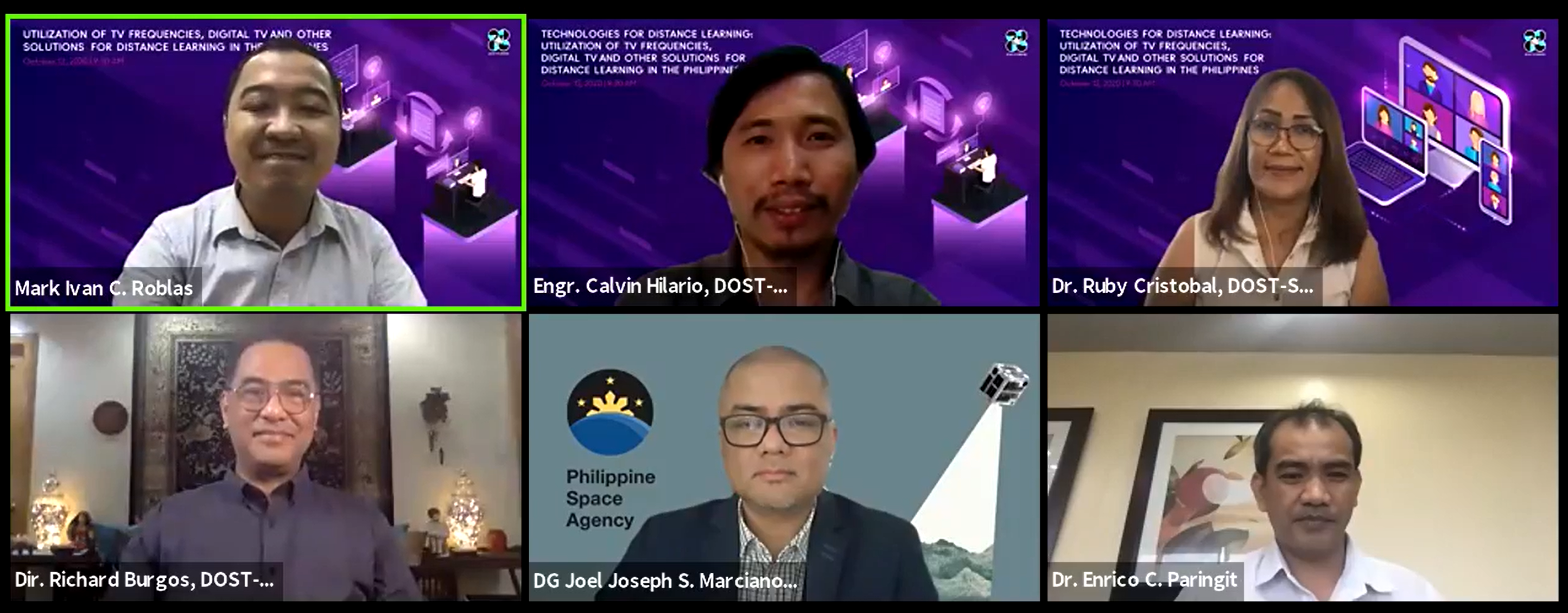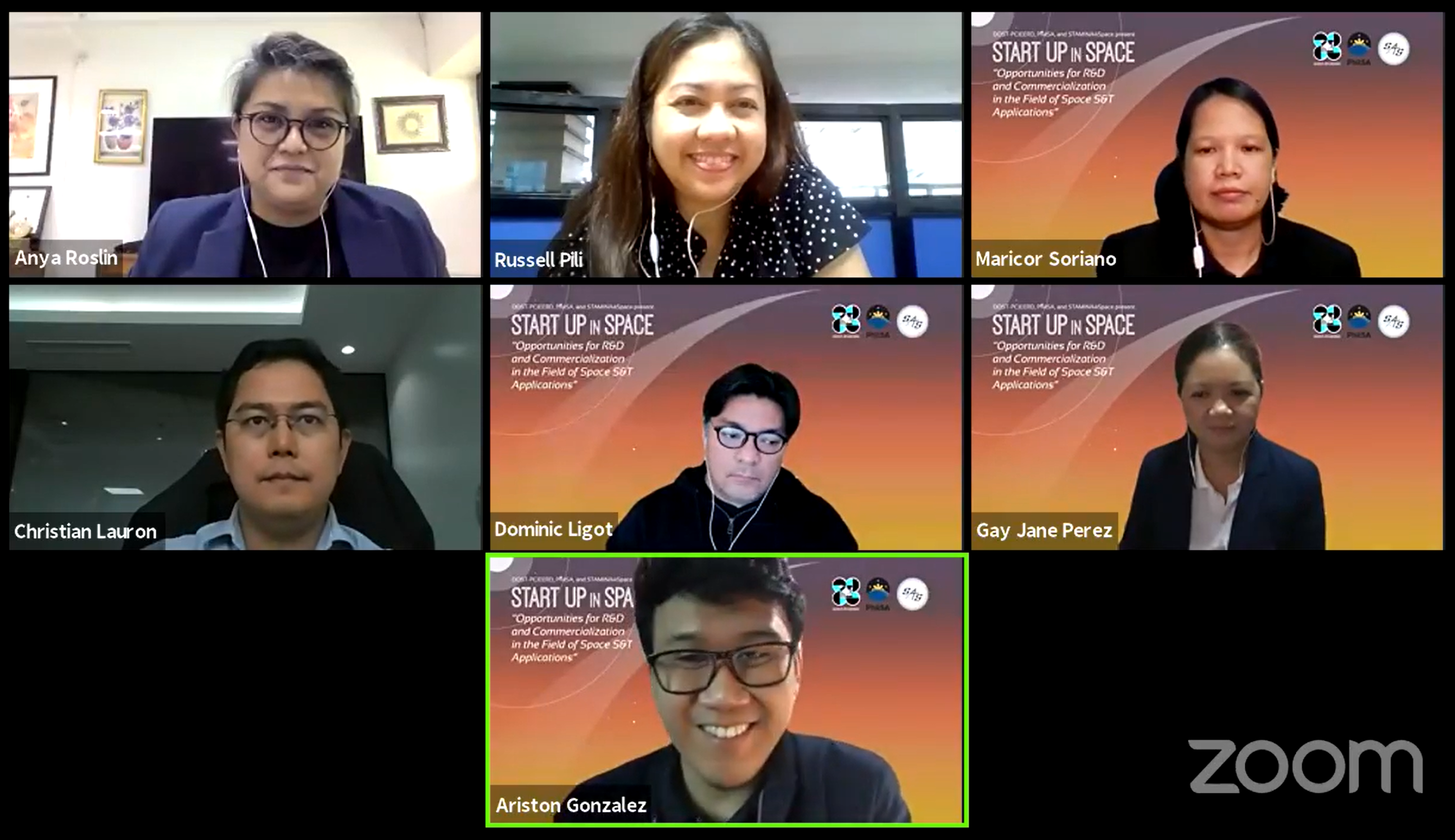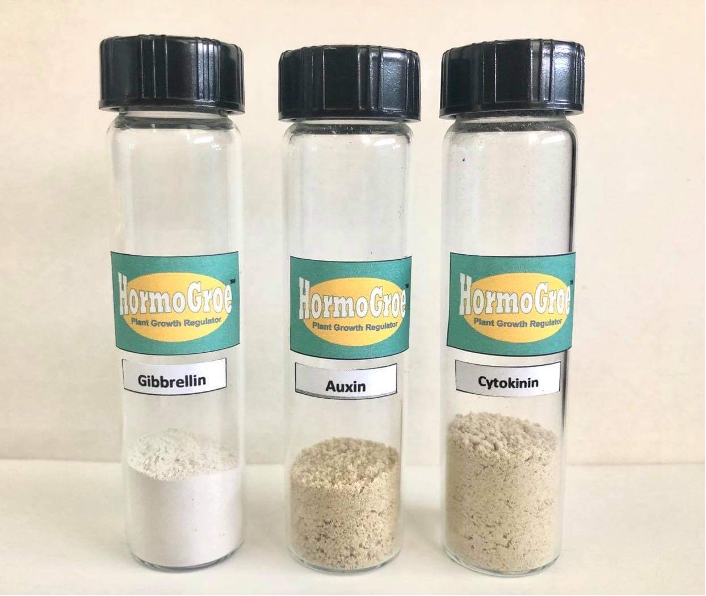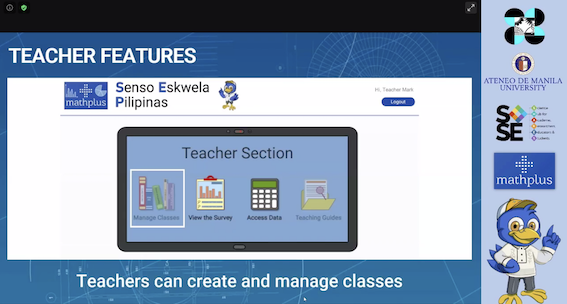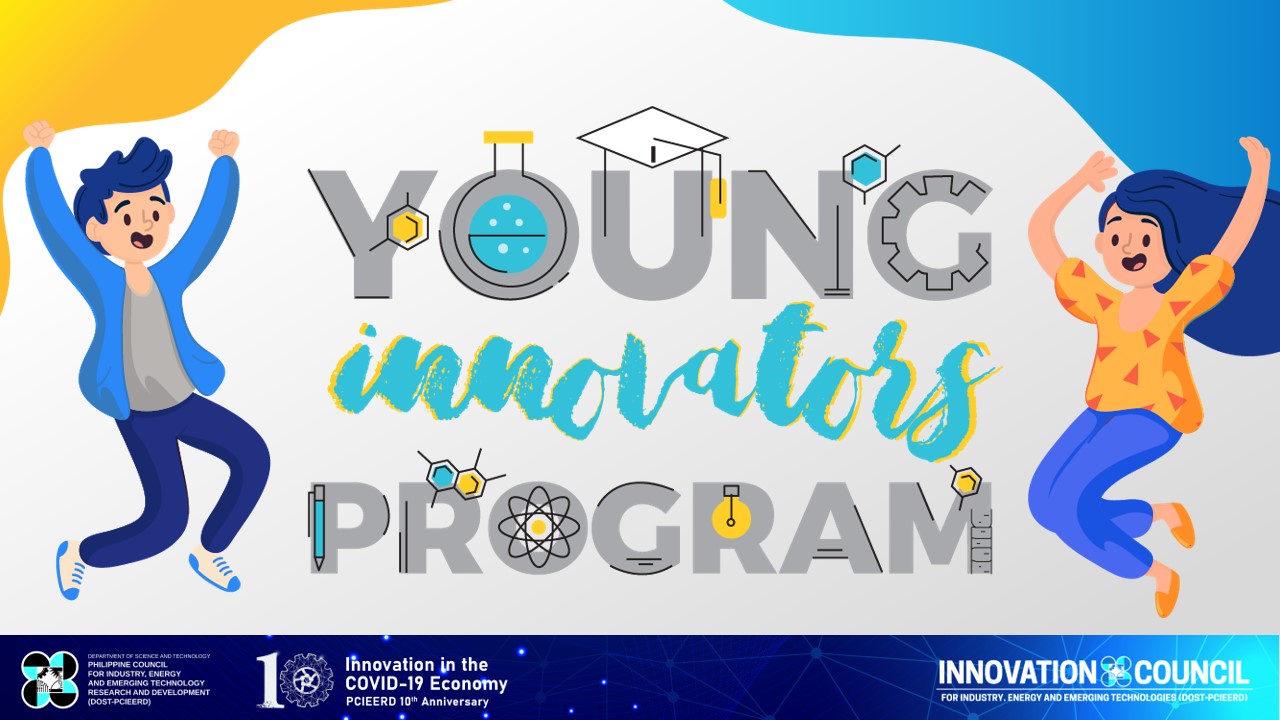The Department of Science and Technology (DOST) on Monday, October 12, showcased innovations and tech solutions that can aid for seamless distance learning for Filipino students in the new normal.
In the webinar, DOST highlighted the use of television frequencies, digital television, and other cutting-edge technologies as the best solutions to the new education scheme that will be implemented in the country.
DOST PCIEERD Executive Director Dr. Enrico Paringit said that as leader and partner in innovation, the Council takes the lead in providing solutions and opportunities to address gaps in making distance learning in the new normal a success.
“DOST-PCIEERD is one with the education sector in contributing to the development of innovations for a more efficient distance learning experience for our dear students. I hope that the technologies, initiatives, and programs that are underscored in this webinar will be enough to inspire you to envision a brighter, more technologically advanced education system for all,” he said.
The initiative is done in response to the directive of President Rodrigo Duterte during his State of the Nation Address "to come up with an integrated program and implementation mechanism to ensure that these TV frequencies are fully utilized by government through the facilities of PTV4 for the utmost benefit of the Filipino people.”
DOST- PCIEERD intends to develop a program that demonstrates and executes a community LTE network and digital TV for distance learning in remote regions with poor internet connectivity. Through the Science and Technology for a Resilient Community against the Pandemic or STRAP Block Grant, the Council will allot up to PHP 60 million to support research initiatives that is aimed at helping Filipinos to cope and manage to the new normal.
Philippine Space Agency (PhilSA) Director General Dr. Joel Joseph S. Marciano, Jr. discussed the development and proliferation of digital datacasting through terrestrial and space segments.
DOST-Advanced Science and Technology Institute Senior Researcher Officer in Charge Engr. Calvin Hilario discussed the development and deployment of community LTE network in the Philippines.
On the other hand, DOST - Science Education Institute (DOST-SEI) Science and Technology Manpower Education, Research, and Promotions Division Chief Dr. Ruby Cristobal spoke about the DOST-SEI Teaching and Learning Materials for Distance Learning while DOST Science and Technology Information Institute Director Richard Burgos bared the agency’s educational interventions like the Science and Technology Academic and Research-Based Openly Operated KioskS (STARBOOKS) and DOSTv.
Paringit said that DOST PCIEERD will constantly find innovative and practical solutions to close the gap between the learner and their educational goals.
“As leader and preferred partner in enabling innovation, DOST-PCIEERD will remain committed to elevate the lives of many Filipinos and recover from this crisis using various S&T interventions and solutions,” he said.
Moving from classroom interaction to distance education is a challenge among teachers, students, and parents because of poor internet connection, no electricity or power interruption, and gadgets are only for more privileged households.
This digital divide was evident in the National ICT Household Survey 2019 conducted by the Department of Information and Communications Technology (DICT), in partnership with the Philippine Statistical Research and Training Institute (PSRTI) participated by 43,000 household nationwide.
The study highlighted that 5% households do not have electricity in their homes, less than half of the households have communal radios, around 82.7% of the households have television at home, only 8.2% have their own fixed telephone line, 24.0% have communal cellphones but only two out of ten have communal computers; and only 17.7% of households have their own internet access at home, majority of which use the internet for social media and communication.
Another challenge that the Philippines face is that 87%, 48%, and 16% of public elementary schools, public high schools, and public health centers, respectively, and most of the government agencies and units do not have broadband or internet connection based on data from the National Telecommunications Commission. (NTC).